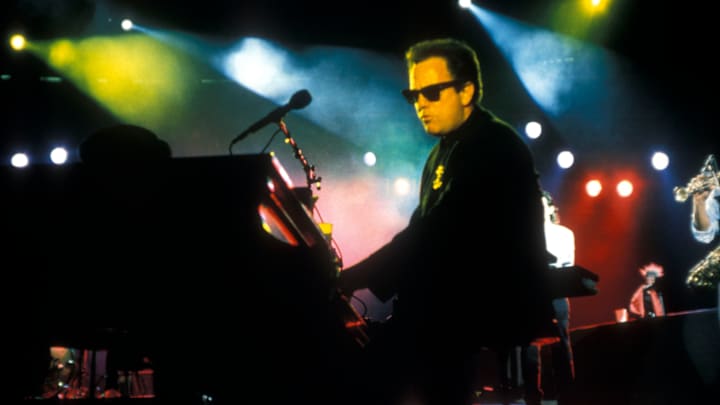“We Didn’t Start The Fire” is a self-portrait of Billy Joel, told through a list of cultural and political phenomena of the 20th century.
The song’s oft-told origin story says that shortly after his fortieth birthday, Billy Joel found himself in a conversation with a 21-year old acquaintance, who groused that “[1989] is a terrible time to be 21.” "Yeah, I remember when I was 21" the piano man responded," – I thought it was an awful time and we had Vietnam, and y'know, drug problems, and civil rights problems and everything seemed to be awful,” to which the kid replied “Yeah, yeah, yeah, but it's different for you. You were a kid in the fifties and everybody knows that nothing happened in the fifties.”
I’d personally like to believe that “We Didnt Start The Fire” immediately sprung forth fully formed, as Billy Joel spontaneously broke into song, correcting his naive friend in song form, like an episode of Schoolhouse Rock
(Just an aside: The young person is often said to be Sean Lennon, but this is a misreading of the primary source; they were a friend of Sean Lennon’s. History has not recorded the identity of the near-sighted youth who inspired “We Didn’t Start The Fire.”)
Thus, “We Disn’t Start The Fire” charts the years from Billy Joel’s birth in 1949 to 1989.
When we look into the song, and the references chosen, we get a sense of who Billy Joel is. The references cover his life up until that point, and are roughly in chronological order, but they’re heavily weighted towards the fifties, Billy Joel’s childhood (in fact, we don’t even get out of the fifties until the sixth verse).
We also get the sense that Billy Joel thought the world was on a downward trajectory, as the references get more jaundiced as the song goes on. In the fifties, he names hit songs and movies and pop-cultural heroes like Elvis and Joe DiMaggio sprinkled in amongst the international war and strife. But by the time the song comes to its conclusion in the 80s, it’s all tumult and tragedy. Even the cultural phenomenon that is heavy metal music is only mentioned in connection with an associated tragedy.
(Though it's no secret why Billy Joel was a little cynical about Heavy Metal.)
Those pop-culture heroes from the early days of the song tell us about Billy Joel’s obsessions; pianists, pugilists, and pitchers all crop up a few times each. Billy Joel is often accused of schmaltz, which is disingenuous by definition, but this list of his childhood heroes feels like a very genuine insight into who he is.
“We Didn’t Start The Fire” also makes a good case for the interconnectedness of all things, as themes begin to emerge when we dissect all of the references. The incidents of international strife named read like chapters in the story of the Cold War. When asked if he intended to chronicle the Cold War, Billy Joel answered, “It was just my luck that the Soviet Union decided to close down shop [soon after the song’s release.]”
Billy Joel is notoriously self-critical, and in 1993, he called it “a terrible piece of music,” and described the melody as being “like a dentist’s drill.” But the fact that the song includes all this information — a portrait of a man, and a time capsule of the Cold War — squeezed into a catchy pop tune makes it a remarkable achievement.
